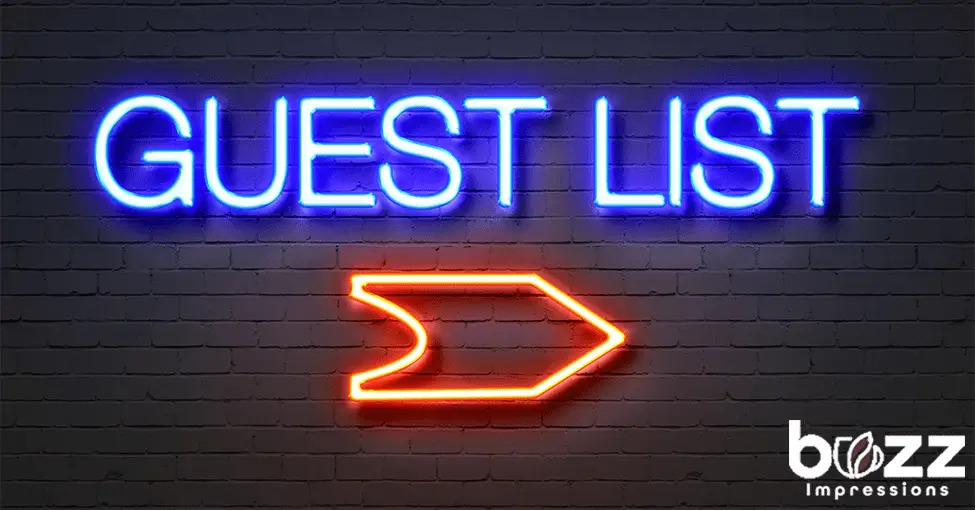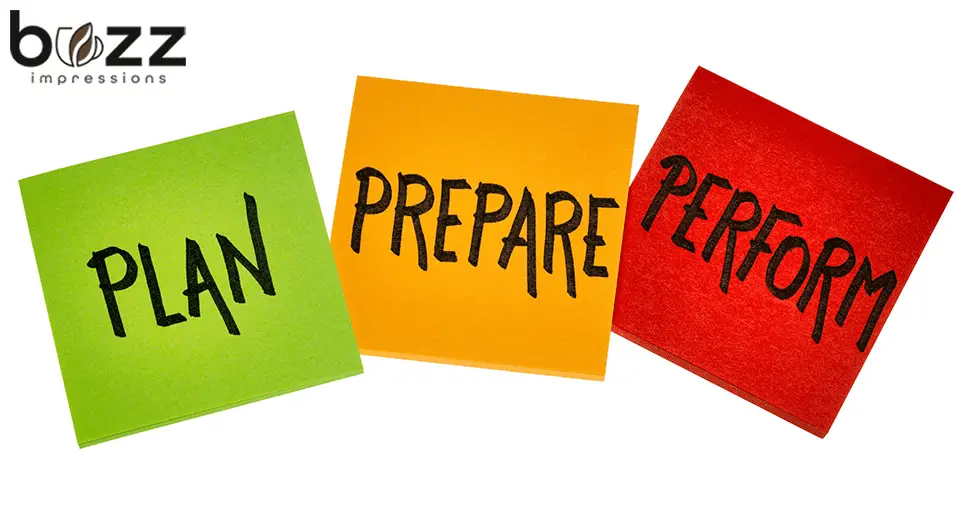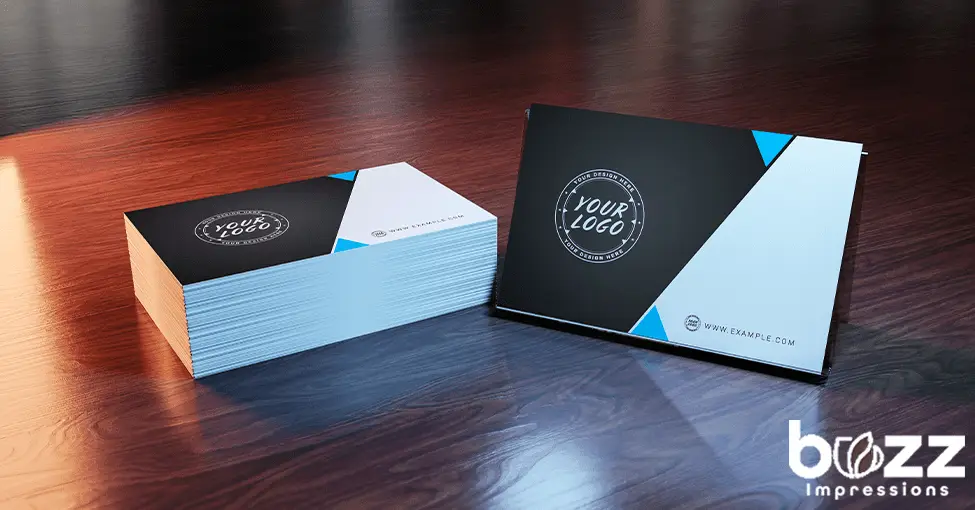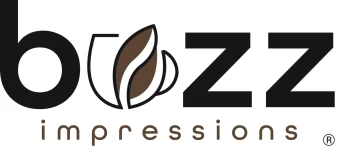For those of you familiar with the industry events known as trade shows, you know just how valuable they are to a growing business. Trade shows provide a wealth of opportunities, including the ability to increase brand awareness, network with prospective clients, and of course, make sales. Trade shows are nothing more than events where companies within a specific industry showcase their goods and services. While more and more business occurs online, trade shows provide exhibitors and attendees with an opportunity to develop new business relationships and discover new products. In this post, we will explore an array of trade show advice for both first-timers and veterans alike.
1.) Know Who Will Be Attending

Our first piece of trade show advice is to know who will be at the trade show in advance. Most trade show organizers will provide a list of attendees in advance. You need to get ahold of this list and do your research. You identify contacts who might find your business interesting and send them a brief introductory email.
In this email, you want to introduce your company, explain what you do, and provide a couple of reasons why they should visit your booth. While it is critical that you reach out to potential customers, you want to avoid spamming their inboxes. Furthermore, you also want to avoid selling your product or service right away. This initial outreach should be light and personal.
2.) Bring Your Varsity Squad

The team you bring to a trade show can greatly impact how the event goes for your company. You essentially have two options: bring an in-house team or contract an event staffing agency that has experience working trade shows. Whichever option you select, you need to understand that your team will be the face of your business. This is why it’s important to have a friendly, professional, motivated, and outgoing group on the floor.
Furthermore, you also want to keep specialization in mind when forming your trade show roster. You want to select team members with skill sets that complement one another. A public relations pro can field inquiries from the press, a salesman can help convert leads, a tech guru can field any technical questions…you get the idea.
3.) Prepare Your Staff

Your entire team needs to be ready for any and all questions. Let’s be real, everyone working your booth will need to field questions at one point or another. This means that every trade show team member needs to know your product lineup and company like the back of their hand. In order to make sure your team is ready for the event, create a list of questions that are likely to come up and role-play them before you hit the floor. Trust us, you’ll be glad you did.
It’s just as important to ask questions of those who approach your booth. Your goal isn’t just to sell but to also form mutually beneficial relationships. Is what you offer something that they’ll find useful? The only way to find out is to genuinely qualify them. Even if your product isn’t an ideal fit, they likely know someone who will benefit from it.
4.) Get Ready to Showcase Your Product
This piece of trade show advice should be a given, but we’re going to toss it in here just to be safe. It’s important to display your product in a way that attendees can test it out. People want to see, touch, or even taste something before purchasing what you have to offer.
5.) Be Prepared Physically

Trade shows are draining, both mentally and physically. If you’re an extrovert, you’ll likely not have any trouble with the highly social atmosphere. However, if you an introvert, you may find yourself running on empty halfway through the day.
You’ll want to get a good night’s rest before the event. Drink plenty of water and avoid over-imbibing if alcohol is served. You’re going to be on your feet or sitting most of the day, so make it a point to go for a walk to clear your mind and get your blood pumping.
6.) Incorporate Seats or a Lounge Area Into Your Booth
There are few things more inviting to a fatigued attendee than a comfortable place to give their legs a break.
A lounge space will likely generate more traffic to your booth and keep potential customers around longer. Furthermore, it’s great to have space where you can relax and chat about your product over a cup of coffee.
7.) Give Away Free Stuff
This is possibly one of our biggest pieces of trade show advice. People love free stuff and they expect to see lots of it at trade shows. You can entice a crowd with something as simple as freshly baked cookies, or you can take your game to the next level with promotional goods such as pens, hats, notebooks, or water bottles. If you decide to give away free swag, make sure it connects to your brand in some way.
Furthermore, there’s no need to be shy about handing out your freebies. The more an attendee sees your swag, the more eager they’ll be to find your booth and see what you’re all about. This strategy is great for sales because once someone has sampled something, they often feel obligated to make a purchase. This is called the law of reciprocity – use it to your advantage.
8.) Be Proactive
Don’t sit around and wait for attendees to ask the first question. Strike up a conversation to get the ball rolling! “Did you know that our product is 100% organic?” “Are you enjoying yourself so far?”
If you’re shy, don’t overthink it. Remember, one of the primary reasons for attending a trade show is to make connections.
9.) Become a Speaker

This takes a bit more preparation and effort, but if you can contact the trade show’s management in advance and convince them that you have something valuable to offer, you’ll be on your way to positioning yourself as a thought leader in your industry.
If you do have a chance to speak, make sure to avoid promoting your product or company. Doing so can cause you to lose credibility. However, you do want to be informative and provide the audience with something of genuine value. If you have an opportunity at the end, encourage the audience to come to talk with you one-on-one.
Additionally, to get the most out of the trade show experience, don’t forget to attend other lectures and panels.
10.) Design a Memorable Display
The average human attention span is roughly eight seconds long and this figure doesn’t account for the plethora of distractions at a trade show.
Designing an attractive display will help to ensure that potential clients stop by. When it comes to your display, avoid words and provide plenty of graphics since the human brain processes images way faster than text. You’ll also want to create a display that can be seen from a decent distance away. Remember, your goal is to get noticed, not ignored.
11.) Bring Business Cards and Brochures

You not only want to bring business cards and brochures, but you’ll want to bring tons of them! Most everyone you meet will want to exchange business cards, so you want to make sure that you don’t run out.
Your business card is an invitation to extend the conversation beyond the trade show and a physical reminder of who you are. In short, it’s a professional must. You will look out of place without business cards and people will likely take you less seriously.
12.) Take Lead Notes
Most trade shows typically have a system for scanning attendee badges that provides you with a way to capture notes on the individuals you meet.
Another great option is a cell phone app that lets you scan business cards and attach notes. Maybe you’re old school and prefer using pen and paper. This is totally okay. Just make sure you have some system in place to take notes on potential customer needs and wants. This will be crucial for after the show when you need to recall each meeting and set up the next steps.
13.) Follow Up
This is without question one of the most important elements of attending a trade show and many overlook it. Remember your primary goal: to turn trade show introductions into long-term relationships.
On that note, reach out to the individuals with whom you interacted. Reference your lead notes so you can draft personalized messages that address the individual needs of each contact. You want to do this within a few days of the trade show so that you don’t lose momentum.
14.) Engage via Social Media
Beneath the buzz of the trade show floor runs the non-stop social media chatter. Don’t ignore it. Twitter is a great way to connect with fellow attendees and keep distant followers involved in the event.
Most trade shows have an official Twitter hashtag that you can use to document your day. Keep your regular social media routine on track by scheduling content in advance. You’ll likely use Facebook and LinkedIn to network with other attendees you meet throughout the day. Doing so makes the follow-up process much easier.
Final Thoughts
Standing out at a trade show isn’t an easy task. It requires a lot of pre-planning and hard work. However, it’s also an excellent chance to market your brand and can provide massive benefits in terms of opening new avenues of business. Plan ahead, have fun and be open to interacting with new people. You seriously never know who you’ll meet!
Finally, after everything is done, learn from your mistakes, keep tabs on what worked for other exhibitors, adjust, and get ready for the next show.




